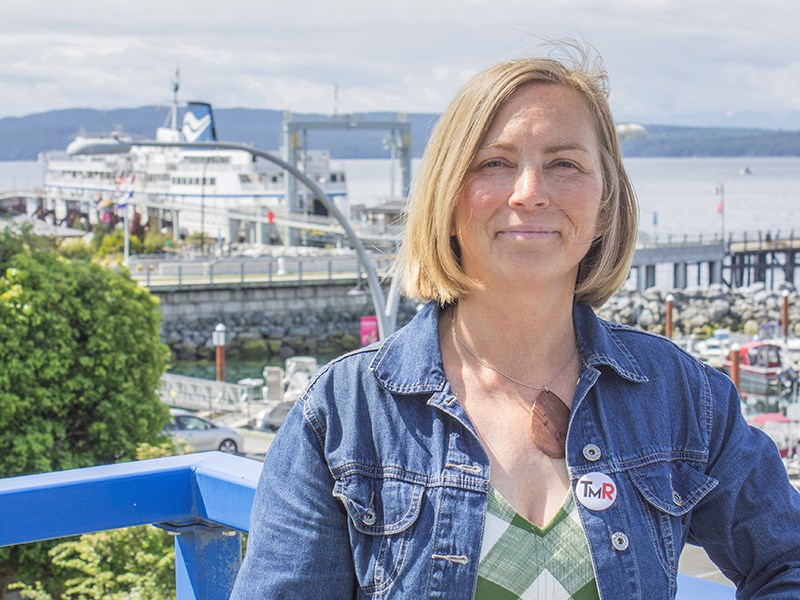One Northern Sunshine Coast Ferry Advisory Committee (FAC) member describes being “extremely frustrated” advising BC Ferries on community concerns.
City of Powell River councillor Karen Skadsheim, one of 10 FAC members in the region, said she is ready to resign from the advisory committee.
“It feels like they don’t really care what we have to say,” said Skadsheim. “I’m extremely frustrated with this. The committee is excellent, but our problems just fall on deaf ears.”
Skadsheim’s main concerns are scheduling, access for travellers requiring elevator use aboard vessels and improving customer service.
Skadsheim said she will be bring these concerns to the table when the committee meets again with BC Ferries representatives on Wednesday, June 1, in Powell River.
A key issue to be discussed is how rearranging the summer schedule to make it more tourist-friendly will affect local transport companies.
BC Ferries public affairs manager Darin Guenette said the committee meetings provide a valuable opportunity to hear community concerns and facilitate communication, but he acknowledges similar concerns have been raised by other committees.
“People get frustrated because they keep asking for certain things and we keep saying ‘no’ and not doing anything,” said Guenette. “Sometimes we can’t, and it’s our job to communicate why we’re not, but that doesn’t always get through.”
Powell River Regional District Electoral Area D director Sandy McCormick said she sympathizes with Skadsheim. McCormick has been on the committee since 2011.
“In my first few years on the committee, I called it the ‘lip service committee,’”said McCormick. “Now, having spent another few more years on the committee, I’m appreciating the value of the input we get to give.”
BC Ferries may not always do what the community wants, but at least the community gets to share its thoughts at the table, she said. It is better than not being able to, she added.
“Of course, they should listen to us more,” said McCormick. “Absolutely, they should, but we do respect that their corporate decisions are their corporate decisions.”
The advisory committee meets twice a year to discuss day-to-day ferry operations, planned improvements and broad policy issues, such as fares and strategic planning.
Guenette said when it comes to making changes to ferry schedules, sometimes internal challenges such as staffing issues or vessel refuelling put restrictions on making those changes.
“Sometimes we have to say, ‘We hear this is a concern and this is why we can’t, or won’t, make a change.’ Maybe that’s not the answer they want to hear,” he said.
But Skadsheim said she thinks FACs exist only because they are a requirement of the contract BC Ferries has with the BC government.
“They are just fulfilling their community engagement requirement, ticking that box and that’s all it is to them,” said Skadsheim.
Skadsheim cited the example of Queen of Burnaby unexpectedly coming out of service last January. Despite the advisory committee being established to provide advice to the ferry corporation on what the community’s response would be to a service change, she said in the case of the Burnaby, they were not consulted until after the decision had been made.
Guenette said he understands that point. Sometimes the advisory committees are just used to relay information to the community, he said.
“Perhaps there are occasions when we could stop and ask if there is any room to see what FAC members think,” said Guenette. “Other times, there are not.”
He added that in the case of the Queen of Burnaby, the decision was made in a short space of time, and said BC Ferries did not consult the FAC because the community’s preference may not have made a difference in solving the problem.
When there are longer timeframes to work with, Guenette said the corporation does try to engage in community consultation.
Guenette reiterated that BC Ferries values the time and effort of FAC members. Committee members volunteer their time, are busy and have jobs, he said.
“We certainly don’t want to frustrate them,” he added. “They are valuable conduits to the community.”



